Supporter Spotlight
This series of interviews with Bergstrom Center Advisory Board members provides valuable insight and experiences from these influential business leaders.
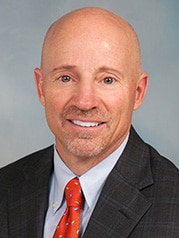
Michael Riccio
Michael Riccio, Co-Head of National Production for CBRE Capital Markets Debt & Equity Finance, spoke with Alex Nunner about how he got his start in real estate and CRE trends. Mr. Riccio has closed over $5 billion of mortgage transactions in major metropolitan areas around the United States in all property types. Prior to opening the CBRE Capital Markets office in Hartford, Michael spent 23 years at CIGNA and held several real estate positions, including assignments in asset management, portfolio management and debt origination.
Why Commercial Real Estate? You completed your MBA in Finance and Real Estate but is CRE something you always had an interest in?
Real Estate has always been interesting to me. What drew me to it as a profession is the unique combination of technical and analytical skills it requires, along with refined people and social skills. Marketing skills, selling skills, all with a healthy dose of math and technical knowledge.
How did you originally get your start in real estate after you finished school?
I started out at school with a Math undergraduate degree and then worked a couple of years before I got my MBA in Real Estate. Then I moved into a Real Estate investment department at a life insurance company. That life insurance company bought, owned, managed, and financed commercial properties. It was with a large institutional life company where I was able to work with people all over the country. We were working on office buildings, regional malls, hotels, industrial buildings, and apartments.
Were you working on both the lending and acquisition sides?
No, those were different groups. I started my career working in portfolio management, then moved over to asset management and then got into commercial loan production. But I learned the basics, by being in the asset management group that allowed me to learn how to become a very good underwriter for commercial mortgages. I was there for 23 years doing that.
And then after that you moved to CBRE?
Right, I had an opportunity to open up an office for them. I took the chance of going from a salary job to a commission job.
How has that transition been? Going from being the lender to being the person actually making the transaction happen?
Yea, it’s completely different perspectives. For many people, a difficult transition. But it has given me the opportunity to essentially start and run my own business within the CBRE platform. It has been the best experience of my career.
What has been the most interesting deal you have been able to be a part of in your career?
I think one of the most interesting deals that we did was a very large portfolio of apartment properties at CBRE. It was 12 properties with $450,000,000 of loan proceeds for a large client of ours. This deal was interesting because half of it was done with Freddie Mac and half of it was done with Fannie Mae. The reason it ended up being this way was we were going to do the whole deal, $450 million with Fannie Mae, but the pricing went up at the very last minute. We had to do part of the deal with Fannie Mae at 7 years because their 10-year rate had become too expensive and half of the deal with Freddie Mac at a 10-year basis. Being able to switch directions very late in the process to give our client a better transaction, we could have gone ahead and closed it but it wouldn’t have been as good for them. We asked many people to do a lot of hard work at the end but we got it done for a very, very, happy client.
How were you able to get Freddie Mac to accept a deal so quickly? Was it through working on deals with them in the past that you could get a quick pricing on it?
Actually, they were very disappointed they didn’t get the whole loan in the beginning. They really wanted to do the whole loan themselves. So, they knew the deal and they wanted it. So, when we went back to them and said do you want half of it, they jumped all over it and gave us very good, quick service.
You’ve done deals with apartments and every other product type, what is the favorite asset class of big lenders right now?
Industrial deals. Industrial followed by apartments. Industrial is less capital intensive than other property types. In other words, to get a new tenant you don’t have to get new lights, carpeting, painting, and all that you would for an office building. The demand for industrial is also so strong because of e-commerce and the supply is well in balance. It is a very good market to be in. Also, since they tend to be smaller, less expensive deals, as opposed to high rise office building, it is hard for large players to get big chunks of it in their portfolio.
Since you have worked in CRE for such a long time, have you developed any habits or traits that have helped you in your career?
I’d say the first thing that comes to my mind is it is really hard work and you have to put in a lot of time. The other thing is, and it is going to sound funny, is you have to be nice to people. You have to treat people with respect no matter what side of the equation you are on. The third thing is kind of a give but you need to continue to grow and learn throughout your career. You need to do the things you are expected to do. Do what you say you are going to do, and eventually people will take your word for it.
I agree, those are all things they tell us in school. Networking is a big one they always talk about.
I would say networking is very important, which goes to relationship building. I would say it has had a tremendous impact on my career.
Do you have any advice for students currently going through recruiting and networking to find internships and full-time jobs?
One of the things that would help you be successful in your career is working. Work hard, be nice to people, be on time. For a beginner, just trying to enter the profession, learn Argus and get certified. Maybe get a real estate license.
Would you say getting your real estate license is important if you are not looking to get into the investment sales side?
Yes, you are able to learn little things about real estate you wouldn’t otherwise know. I think it is not critical but if you ask me if I recommend it, I would say I do.
To wrap up the interview, do you have anything you would like to add?
To sum it all up, real estate is a great profession. There are a lot of different things to do. It is fun, and the people in it are interesting. It is not rocket science, but you have to work really hard to be good at it. Your competitors are always breathing down your neck and waiting to swoop in and steal your clients. Being very meticulous about what you do and not making errors is very important. I recommend anyone interested in it to work and pursue their goals, network and keep records of whom you talked with. I actually just talked with someone on the phone just before this and I had only spoken with them once a few months ago, but they are buying a building in New Haven and they need financing on it. I called them out of the blue and now I’m sending them an engagement letter and will be meeting with them tomorrow to discuss more details of the deal. You never know who you are going to be talking to on any given day. I’m flying down to DC to pitch a large $155,000,000 deal that they want to sell and I’ll be there to talk about the debt. In CRE there is always something good going on and it is an exciting industry to work in.
Alex Nunner is a full-time student. He is attending the University of Florida and completing his Masters of Science in Real Estate. Connect with Alex on LinkedIn with any questions or opportunities you may have.
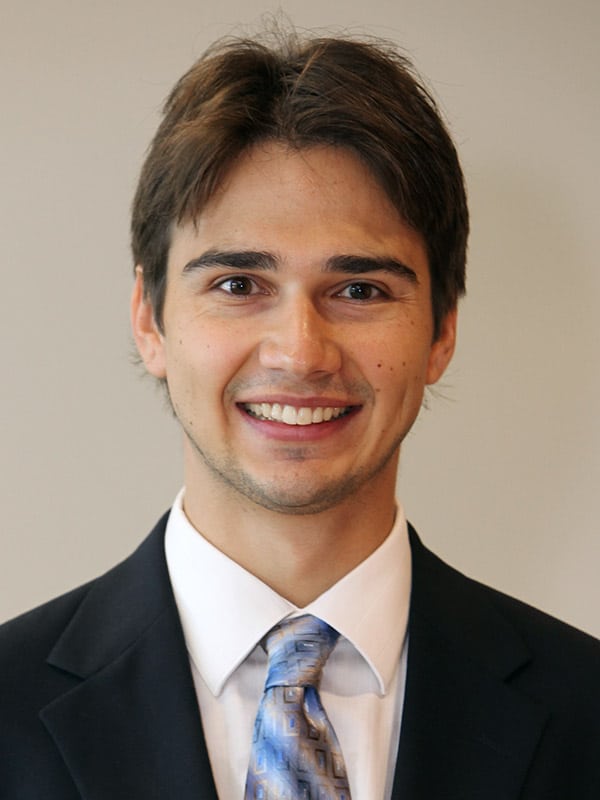
Dmitriy Dubrovsky
How long have you been in the real estate (asset management) industry and how did you initially get started?
I started my career in the construction industry working for a general contractor on a project management side and, eventually, transitioned into financial department. I have been in real estate since I graduated from MSRE program in 2013.
What business is your current employer in?
I work for ExxonMobil which is a multinational oil and gas corporation. I am in the global real estate division, supporting North and South America regions. Our core business is to provide real estate expertise to the company and its affiliates.
What does an average day at the office look like for you?
Every day depends on what meetings you have scheduled and whether there are some pressing matters that require immediate attention. The only common thing about every day is early morning and late afternoon, when it’s time to catch up on emails.
What do you like most about your work?
The company culture and the way it brings all the different individuals together. You can find people from all over the globe working on a common goal.
How did you first get involved with the University of Florida?
I first came to University of Florida in 2008 to obtain master’s degree in Building Construction.
Have you hired any MSRE students in the past? If so, how successful have they been?
I have not, but I know ExxonMobil is an active recruiter of University of Florida graduates.
What is one book everyone should read?
I think everyone should have a solid understanding of financial markets, so I would suggest reading “Just One Thing” by John Mauldin. The author goes around a group of recognized financial experts and asks each to offer the single most useful piece of advice garnered from years of investing. I’ve used their suggestions numerous times in professional as well as personal life.
What is the best advice you have ever received?
Much over the top consumption is a futile attempt at squeezing some joy out of the money that you gave up your precious time to accumulate.
What were you most recently listening to on your iPod/iPhone/music player?
I was listening to Leonard Cohen a little bit earlier this night.
Give one piece of advice to the current UF MSRE students?
Be open to all opportunities; you never know what they will turn into. And keep knocking on all doors; you never know which one of them will open.
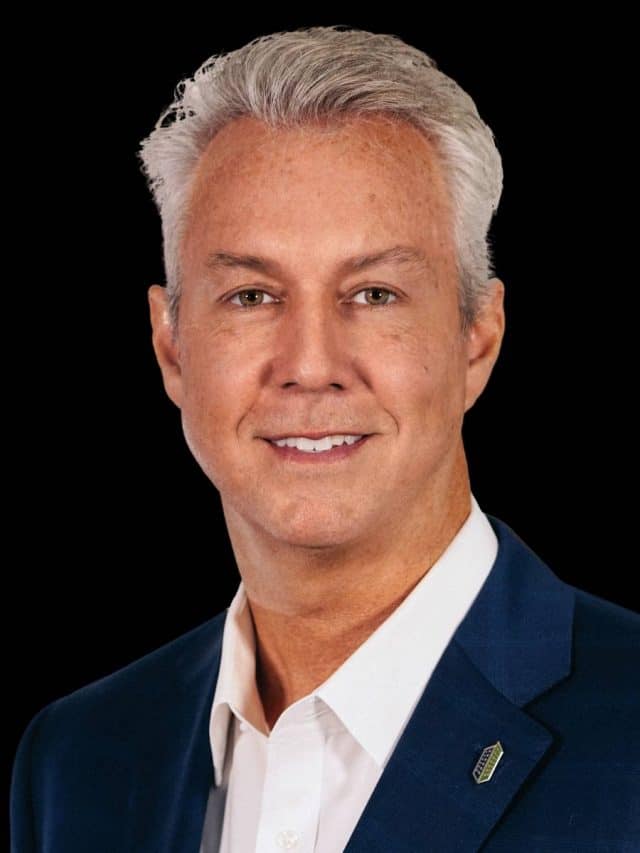
Steve Hagenbuckle
How long have you been in the real estate industry and how did you initially get started?
I have been in Real Estate for 18 years. I started as a result of a liquidity event I had when I sold a technical consulting firm with 155 employees to a public company in 1997 (CBR: NYSE) – It has always been my passion but I did not want to get involved until I had the capital to do it in a meaningful way.
What does your business currently do?
TerraCap manages a series of Commercial Real Estate Private Equity funds. We are launching our third fund now. The target is $300M and it is for a Deep Value – Value Add strategy for all major asset classes in the Southeast United States with a focus on Florida.
What does an average day at the office look like for you?
A split of selling assets from existing funds to leasing assets to raising capital and sourcing or evaluation new acquisitions along with all the administrative items that come along for the ride. Never a dull moment and not enough time in the day.
How did you first get involved with the Advisory Board?
I was personally invited by Kelley Bergstrom to consider joining.
Have you hired any MSRE students in the past? If so, how successful have they been?
Yes, we hired Thomas Webb a year ago. He has been a great addition to the TerraCap team.
What is one book everyone should read?
The Outliers
What is the best advice you have ever received?
Work hard, Be Patient, Under Promise and over Deliver, keep you commitments, be honest and Time and Tide waits for No Man. But best of all is “Life is not a dress rehearsal!”
What were you most recently listening on your iPod/iPhone/music player?
The Beach boys – Surfing USA with my daughters!!
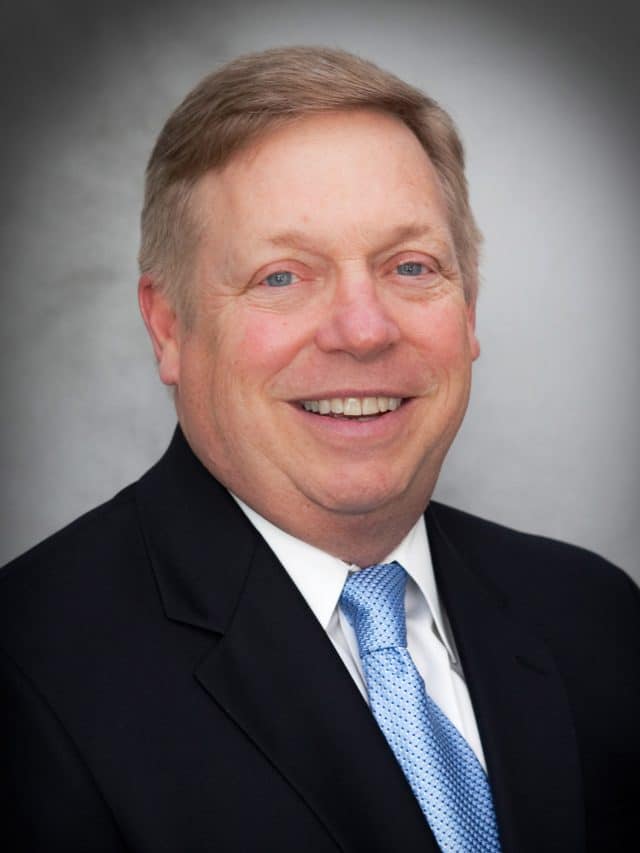
Albert Rex
How long have you been in the real estate industry and how did you initially get started?
I got my start in the Real Estate Industry in 1976 through an introduction by Dr. Archer, to the group that master planned and developed St. George Island Plantation, near Apalachicola in the Pan Handle. It was an interesting time in Real Estate as there was a significant downturn in 1974/75. The market was still recovering, and the idea of Planned Communities had only begun. This group copied much of the success of Sea Island Plantation, which was indeed successful.
While seeing the concept/execution of a Master Planned Barrier Island Community was interesting, my job was basically to sell lots in the community. I had my real estate sales license, but no training in real estate sales or any type of sales. This was the first true sales position I had ever held. My compensation was straight commission.
I started working weekends while still in school. I drove to St. George (200 miles each way) on Fridays, sat in the sales office on Saturdays and Sundays, and then drove back on Sunday nights. I continued through the summer of 1976, and while I had some success, I didn’t have quite enough money to pay for my last year of school. I took 6 months off of school to sell full time so I could afford to go back and finish. I was able to make just enough money, when combined with some student aid, to complete my education.
Along with gaining some experience in Real Estate, I also learned a lot about myself during this time. I realized while I liked sales, I needed to work somewhere that involved training and where I wasn’t dealing with the general public. After graduating in 1977, I concentrated on finding a job in Commercial Real Estate Finance with a large company. This led me to my first job out of college with Travelers in their Real Estate Investment Division, as part of the Fort Lauderdale regional office.
What does your business currently do?
I am still in Commercial Real Estate Finance/Mortgage Banking providing Debt and Equity on all types of income producing real estate (Office, Retail, Industrial, Apartments, Hotels, etc.). After having helped build and operate a successful Mortgage Banking Company for 25 years, which started in 1983 with 2 employees in 1 office and grew to over 100 people in 14 offices, we sold the company in 2007. Although the name on the door has changed to Walker & Dunlop, a 75-year old company that became public in 2010 (NYSE: WD), I still do essentially the same thing I have since graduation: helping people find capital for their existing and new real estate projects. I represent many of the same Life Insurance Companies, Pension Funds, Banks, etc. that I have for 20+ years. I am fortunate to have a great group of people helping me, many of which have been with me for over 10 years. Walker & Dunlop is one of the premier companies in Commercial Real Estate Finance and was the #1 Fannie Mae lender and top 5 Freddie Mac and HUD lender for Multifamily in 2013.
What does an average day at the office look like for you?
The great thing about what I do is I have a lot of variety. I am working on 5-10 deals of varying types at any given time, each posing different challenges. Also, each owner/developer has a different goal, so my job isn’t boring. Technology has changed some of what I do as it is much easier to analyze and put together a package on deals and deliver things with the push of a button; however, much of my job is communication and building relationships between capital sources and real estate owners. This involves face to face meetings and phone calls, as well as emails and texts. Since relationship building and helping someone get the best financing is not all black and white, my job is part art, part science and part psychology, which is what keeps it interesting and fresh every day. Albeit frustrating some days, as it’s hard to tell at times whether you have made any progress.
How did you first get involved with the Advisory Board?
I was fortunate enough to have been involved in helping form the Advisory Board. Before there was an MSRE program, UF only had an undergraduate program in Real Estate and, there were not many ways for graduates to stay involved in the program. While lamenting this over beers with Dave Palumbo (another real state grad), we decided that rather talk about what we didn’t have, we should do something about it. We wanted to create a way for graduates and people in Real Estate to stay involved with the school and give back.
We were aware of what the University of Wisconsin was doing and that they had a great Real Estate Alumni group of over 500 people at the time. They annually put on a Real Estate Conference that drew 400-500+ people. We approached Dr. Archer and Dr. Ling with this idea, which they fully supported and committed to help, but the University wouldn’t be able to provide any funding. With great confidence we set out to plan the first Fall Conference.
We quickly realized (this being about 1979 and before any computerization of records) that no list of Real Estate graduates existed. We would have to go through the paper records by hand and develop a mailing list, which with the help of Drs. Archer, Ling and current students, we did. Dave and I also realized we needed help from other past graduates, so we asked Blaine Strickland (and I’m sure others that I’m forgetting) to get involved, which he immediately did. Armed with a list dating back into the 1930s and no money, we set a date, reserved a room and planned the first conference. Needless to say, it wasn’t the immediate success of today’s conference as we probably only had about 40-50 people attend, and we barely broke even on the costs. It was also much harder than any of us imagined. Thanks mainly to the generous amount of personal time that Dr. Ling and Archer contributed, we were able to take that grass roots start and expand into today’s Advisory Board and UF FARE.
Have you hired any MSRE students in the past? If so, how successful have they been?
I have hired 10+ UF grads, some MSRE and some prior to the MSRE program, and they have all generally found success. Some with me and others have moved on to other aspects of Real Estate. While the program has evolved over the years, it has always done a very good job of giving students a solid understanding of real estate fundamentals, including valuation, cash flow modeling, and exposure to many of the different disciplines, like Law, Planning, and Development. In recent years, the emphasis on communication skills and expanding horizons to international studies is providing an even broader and more valuable experience. The interaction and growth of the advisory board has also created an immediate network of support for graduates to draw upon. The combination of everyone collaborating and contributing has allowed the MSRE program and the Bergstrom Center to become an example, both nationally and internationally, for setting a standard for education and contribution to the Real Estate Industry in Florida and beyond.
What is one book everyone should read?
I enjoy reading and have drawn something from many books over the years, but one that comes to mind that I read soon after graduating (at the suggestion of one of my mentors) is How to Win Friends and Influence People by Dale Carnegie. While this is an old book (published 1936), the message it delivers on how to communicate and treat people still applies. I use the lessons it taught me everyday in both my personal and professional life.
What is the best advice you have ever received?
Do what you say. Be humble. Never compromise your integrity. Find something you are passionate about, and you will enjoy working hard at it. Work hard, and do more than you think others would. Trust your instincts, and don’t be afraid to take risks.
What were you most recently listening to on your iPod/iPhone/music player?
I have very eclectic tastes in music and listen to everything from classic rock to country, with some current pop mixed in.
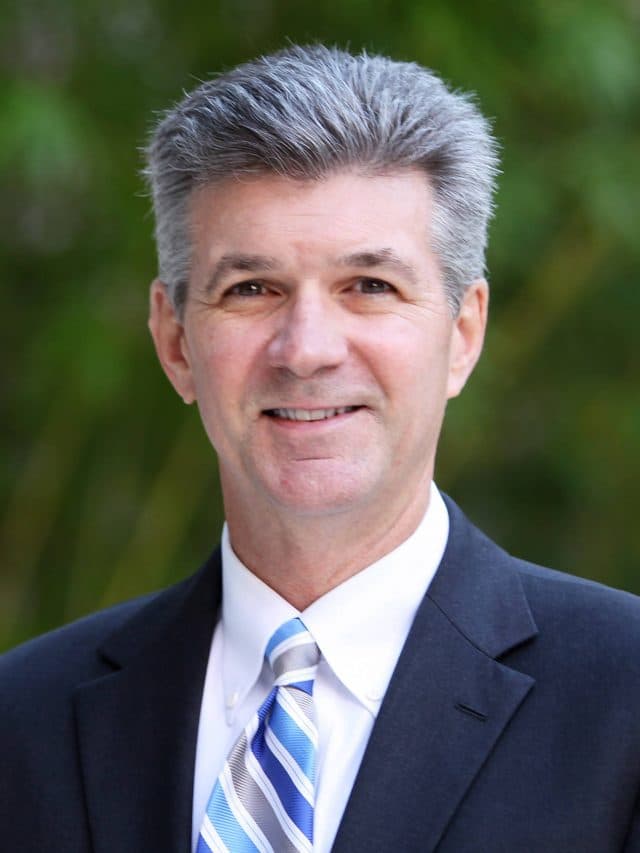
Richard Donnellan
How long have you been in the real estate industry and how did you initially get started?
35 years. My father greatly influenced my entry into real estate. He was an entrepreneur in the real estate investment/development business. Immediately after graduating from UF I started working for a small residential firm located across from Galt Ocean Mile in Fort Lauderdale. I did residential sales, condos and rentals; although my first sale was a very small strip center. I did that for one year then went to work for my father where I worked primarily on selling out condo projects. A few years later I wanted to transition into investment sales so I joined a major national commercial firm and worked for one of their top producers as an assistant. Both he and my father were great mentors that taught me the fundamentals of how to do investment sales the right way.
What does your business currently do?
We work on the capital side of the multi-housing industry. Our main business is investment sales, finance and capital- raising for existing projects as well as new development.
What does an average day at the office look like for you?
No day in this business is average. We manage a high volume of transactions. Each requires various degrees of attention depending on where they are in the deal cycle. It ebbs and flows. The work demands and priorities change daily. It’s what makes the business very interesting and challenging. No deal is the same.
How did you first get involved with the Advisory Board?
Dr. Ling called me and asked me to join. He’s very persuasive. I couldn’t say no.
Have you hired any MSRE students in the past? If so, how successful have they been?
Over the years we have hired seven students who graduated out of the program as well as one summer internship. It is the first resource we turn to for recruiting as we have had great success with a very high majority of the graduates who have come to work for us. Three of the seven work with us today and are doing very well and either meet or exceed our expectations. Three of the other students have moved on to other companies and are doing very well.
What is one book everyone should read?
“Unbroken”, an incredible story on survival.
What is the best advice you have ever received?
Give back and pay forward; avoid debt and procrastination; most important: do unto others as you would have others do unto you.
What were you most recently listening to on your iPod/iPhone/music player?
Pandora. I like the variety.